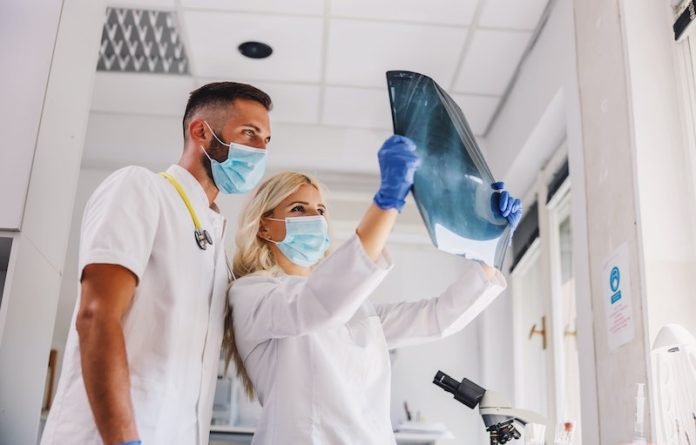
In a study from Mayo Clinic, scientists found key human genomic signatures that could help explain why COVID-19 is severe in some people and mild in others and mild in others.
They identified mutations in two human proteins that might sway the course of SARS-CoV-2—the virus responsible for COVID-19.
In the study, the researchers delved deep into the DNA sequencing data of nearly 71,000 people worldwide, including nearly 30,000 racial and ethnic minorities, to identify sequence variants in the ACE2 and TMPRESS2 genes.
The team then analyzed hundreds of protein variants encoded by those genes and identified variant genes that generated high and low expression levels.
They found that variants in the genes for ACE2 and TMPRESS2 can lead to an increase or decrease in protein expression.
An increase in protein expression might result in elevated COVID-19 susceptibility and severity, while a decrease might have a protective effect against the virus.
Proteins play many critical roles in the body. In this case, ACE2 and TMPRESS2 provide critical entry points for SARS-CoV-2 to invade and infect human cells.
The study findings suggest a potential new diagnostic approach that is based on variation in the host cells rather than the constantly evolving virus itself.
The team suggests that the virus’s interaction with proteins encoded by the human genome may also be a contributor to a person’s disease outcome.
These results can now be applied to DNA sequence data for patients infected with SARS-CoV-2 to potentially determine the degree of susceptibility to the disease
The researchers hope this methodology can be expanded for other genes involved in COVID-19, and that scientists and clinicians across the world can use this information to help their patients.
If you care about COVID, please read studies about antiviral drug that may block COVID-19 transmission, and durable coating can kill COVID virus, and other germs in minutes.
For more information about COVID, please see recent studies about new face masks to deactivate COVID-19, and results showing flu and COVID-19 vaccines may increase heart disease risk.
The research was published in Human Molecular Genetics and was conducted by Lingxin Zhang et al.
Copyright © 2022 Knowridge Science Report. All rights reserved.



